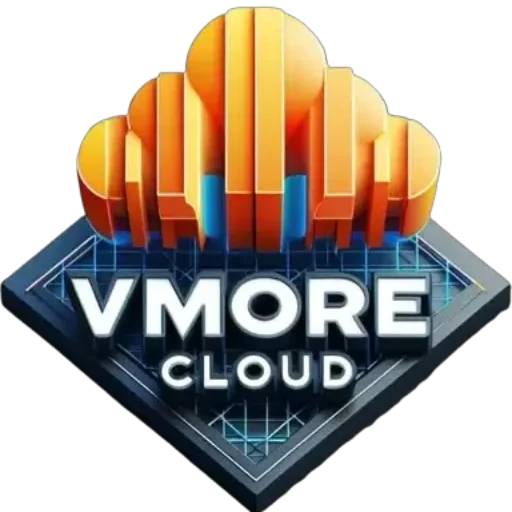VMware vRealize Automation Orchestration (vRA) is a powerful tool for automating and managing complex IT environments, widely used for deploying, configuring, and managing virtualized and multi-cloud infrastructure. However, several competitors offer similar functionalities, with each tool having unique features and benefits that may be suited to different types of organizations. This article explores some of the leading alternatives to VMware vRealize Automation Orchestration and compares their core features, strengths, and use cases.
1. Red Hat Ansible Automation Platform
Overview: Red Hat Ansible is a widely used IT automation tool that excels in configuration management, application deployment, and orchestration across complex environments. Ansible uses a YAML-based scripting language, making it relatively easy to learn and highly flexible.
Features:
- Agentless architecture for easier management
- Extensive library of modules for a variety of tasks
- Strong community and extensive integrations with other Red Hat products
- Focuses on scalability with automation of thousands of nodes
Pros:
- Highly scalable and easy to deploy in large environments
- Strong community support and extensive documentation
- Seamless integration with Red Hat ecosystem, ideal for Linux-based environments
Cons:
- Requires a good understanding of YAML scripting
- Less suited for environments heavily reliant on Windows-based infrastructure
Best for: Organizations with Linux-based infrastructure or those invested in Red Hat’s ecosystem.
2. HashiCorp Terraform
Overview: Terraform is an infrastructure-as-code (IaC) tool designed for provisioning and managing multi-cloud environments. Its declarative configuration approach allows users to define infrastructure using code, making it easy to manage and scale.
Features:
- Supports multi-cloud environments, including AWS, Azure, and Google Cloud
- Declarative syntax for simplified infrastructure management
- Modular, reusable configurations for infrastructure provisioning
- State management for tracking resource changes
Pros:
- Strong support for multi-cloud environments and hybrid infrastructure
- Open source with extensive community support and provider plugins
- Scales effectively for both small and large deployments
Cons:
- Lacks advanced role-based access controls in its open-source version
- Learning curve for users unfamiliar with IaC concepts
Best for: Companies focused on multi-cloud environments or hybrid infrastructure management.
3. BMC Helix Cloud Cost & Service Optimization
Overview: BMC Helix is a cloud-native SaaS platform designed for service and cloud cost optimization. While primarily focused on cost management, it also provides robust automation tools for IT environments, making it a competitor to VMware vRA.
Features:
- Intelligent recommendations for cost optimization
- Predictive analytics for resource utilization
- Integration with major cloud platforms (AWS, Azure, GCP)
- Robust workflow automation capabilities
Pros:
- Strong focus on cost management and optimization
- Predictive analytics and automation for enhanced efficiency
- Integration with popular cloud services
Cons:
- Primarily SaaS-based, which may limit customization
- Higher cost for advanced features and customizations
Best for: Enterprises focusing on cloud cost management and optimization alongside automation.
4. ServiceNow IT Operations Management (ITOM)
Overview: ServiceNow ITOM offers cloud-based solutions for IT operations, including orchestration, cloud management, and incident response. Known for its user-friendly interface and comprehensive service management capabilities, ServiceNow is a top choice for enterprises looking to streamline operations.
Features:
- Workflow orchestration for cloud and on-premises environments
- Extensive ITSM and ITOM capabilities
- Event management and alerting for proactive incident response
- AI-powered automation and insights for efficient resource management
Pros:
- Strong ITSM and ITOM features for seamless operations
- Scalable across large enterprise environments
- Integrates well with other ServiceNow modules
Cons:
- Relatively high cost, especially for small-to-midsize businesses
- SaaS-based model may not suit organizations with strict customization needs
Best for: Large enterprises looking for a robust service management and orchestration solution.
5. Microsoft Azure Automation
Overview: Azure Automation provides a set of tools for managing and automating tasks across Azure and hybrid cloud environments. It integrates seamlessly with other Microsoft Azure services, making it a good choice for organizations with significant investments in Azure.
Features:
- Automation of repetitive tasks and cloud resource management
- Supports PowerShell and Python for scripting
- Configuration management with Desired State Configuration (DSC)
- Integration with Azure Monitor for proactive alerting
Pros:
- Seamless integration with the Azure ecosystem
- Cost-effective for Azure-heavy infrastructure
- Extensive scripting and automation options
Cons:
- Limited to Azure and hybrid environments; not ideal for multi-cloud
- Lacks some advanced orchestration features found in vRA
Best for: Organizations using Azure who want to streamline their cloud automation.
6. Cisco CloudCenter Suite
Overview: Cisco CloudCenter is a multi-cloud management platform focused on deploying and optimizing workloads across different cloud environments. It supports automation and orchestration for both cloud and on-premises infrastructures.
Features:
- Multi-cloud support with workload management across private and public clouds
- Governance and cost management tools
- Workflow automation and self-service portal
- Security compliance for multi-cloud environments
Pros:
- Strong support for multi-cloud and hybrid cloud environments
- Comprehensive governance features for security and compliance
- Self-service capabilities for end users
Cons:
- Complexity in initial setup
- Higher cost, particularly for advanced features
Best for: Organizations with complex, multi-cloud environments that need advanced governance.
7. Nutanix Calm
Overview: Nutanix Calm provides native application automation and orchestration across private and public clouds. It simplifies application lifecycle management, allowing users to deploy and manage applications with minimal effort.
Features:
- Multi-cloud management across AWS, Azure, GCP, and private clouds
- Blueprint-based automation for application deployment
- Role-based access controls for security
- Integration with Nutanix HCI for optimal performance
Pros:
- Efficient, blueprint-driven approach to application deployment
- Strong integration with Nutanix HCI
- Simplifies management across hybrid cloud environments
Cons:
- Limited customization options outside Nutanix ecosystem
- Less ideal for environments without Nutanix infrastructure
Best for: Organizations already invested in Nutanix infrastructure looking to expand into multi-cloud management.
8. Cisco Intersight
Cisco Intersight is a cloud-based infrastructure management platform designed to simplify and automate IT operations across data centers, edge environments, and cloud infrastructure. As organizations increasingly adopt multi-cloud and hybrid environments, Cisco Intersight provides an efficient, scalable solution for unified infrastructure management, workload optimization, and operational insights.
Features of Cisco Intersight
- Unified Management for Hybrid Environments: Manage on-premises, edge, and cloud resources from a single platform, simplifying multi-environment operations.
- Automation and Orchestration: Streamline workflows with policy-driven automation, reducing manual intervention and ensuring consistent configuration and compliance.
- AI-Powered Insights and Recommendations: Gain predictive analytics and actionable insights for optimized resource utilization, performance, and cost efficiency.
- Seamless Integration with Cisco UCS and HyperFlex: Easily manage, deploy, and monitor Cisco UCS and HyperFlex infrastructure with native support.
- Kubernetes and Container Management: Deploy and manage Kubernetes clusters across hybrid environments to support modern, cloud-native applications.
- Security and Compliance Monitoring: Enforce security policies and maintain compliance across infrastructure with regular auditing and vulnerability assessments.
- Flexible Licensing Options: Choose from Essentials, Advanced, and Premier editions to match specific business needs and scalability requirements.
Pros:
- Cloud-based scalability with easy access to multi-cloud and edge environments.
- Seamless integration with Cisco UCS and HyperFlex infrastructure.
- Comprehensive automation to streamline configuration and compliance tasks.
- Powerful analytics for data-driven optimization and proactive management.
Cons:
- Primarily optimized for Cisco environments, so organizations with mixed vendor infrastructure may face limitations.
- Licensing costs may be high for small to medium-sized businesses.
Conclusion
When choosing an alternative to VMware vRealize Automation Orchestration, it’s essential to consider factors such as compatibility with existing infrastructure, ease of integration, scalability, and specific automation requirements. Each competitor has unique strengths that make it suitable for different scenarios, from the cost-effective flexibility of Ansible to the cloud-native capabilities of BMC Helix. Evaluating these alternatives can help businesses identify the best fit for their automation and orchestration needs, ultimately driving greater efficiency and control over their IT environments.
- Design

